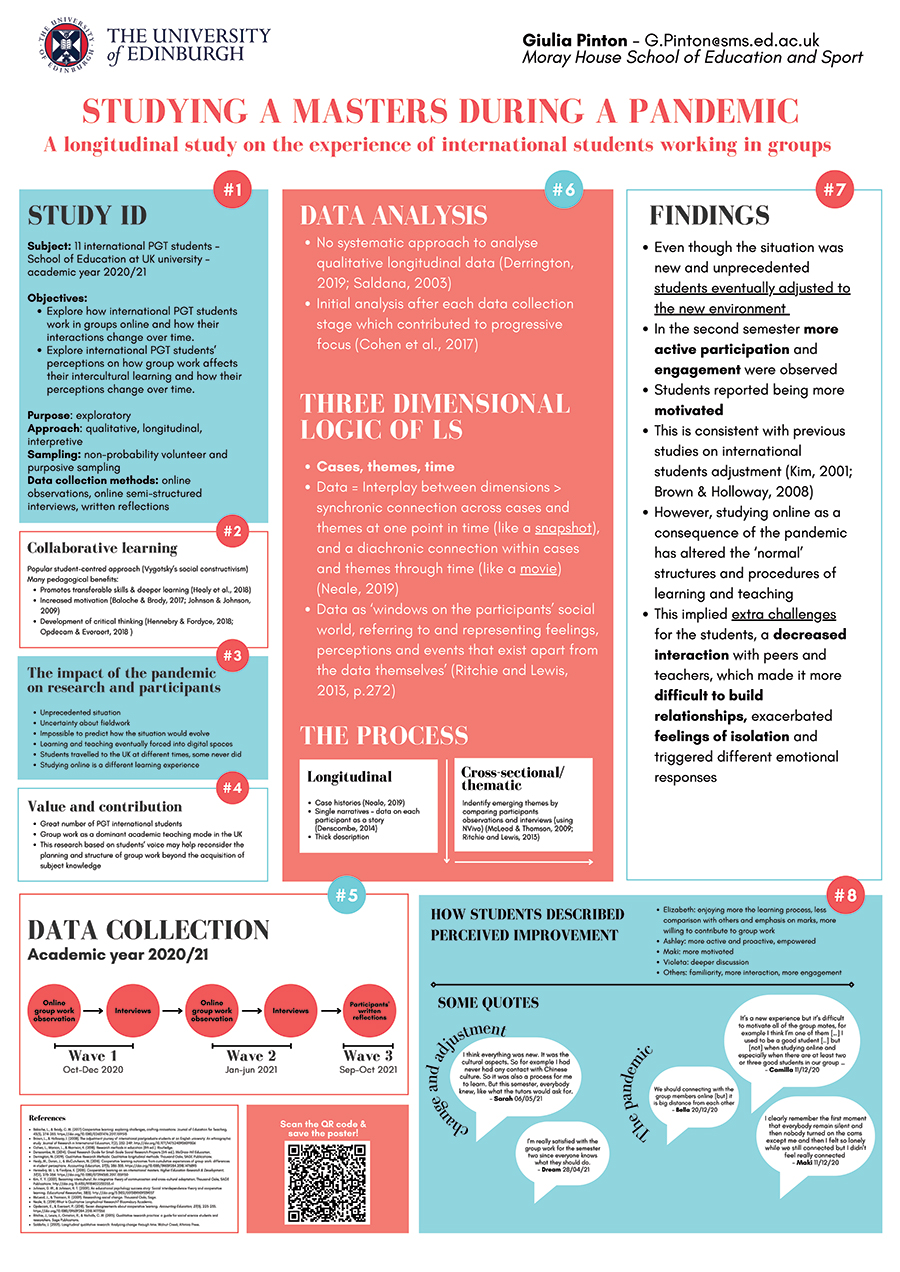Title: Studying a Masters during the pandemic: PGT international students’ experiences working in groups
Author: Giulia Pinton
Theme: Hybridity reimagined: Teaching experientially in outdoor, indoor and online places; Equality, Diversity & Inclusion; Challenging accepted ways of thinking

| Studying a Masters abroad poses many challenges for international Masters students who find themselves having to adjust, in a short time, to a new academic and sociocultural environment. Although international students make up more than half of the PGT student population in UK universities, their voice on many aspects of their learning experiences has been given comparatively little attention. Using a combination of online observations of group work, semi-structured online interviews, and participants’ reflections, this qualitative longitudinal study aims to give voice to those students by exploring their experience as they participate in collaborative learning (group work) in online settings. Previous studies found that this popular student-centred teaching practice enhances independent and deep learning as well as the development of intercultural competencies and transferable skills. However, it was also found to present many challenges, for example negative feelings due to improper implementation. Moreover, the study’s participants were in Masters programmes which weren’t originally designed to be online but had to adapt to the unprecedented circumstances caused by the pandemic. Certainly, moving teaching and learning into digital spaces brought about new opportunities but more challenges as well. From the initial data analysis, valuable insights emerge. While working online seemed to allow for more flexibility in time and space, it also appeared to make communication and relationship-building more challenging. Students reported a decrease in motivation and a negative impact on participation in group activities. However, consistently with previous studies and despite distance learning during the pandemic, an increased familiarity with the new academic context was observed during the second semester. Becoming more familiar with the target academic and social environment positively affected the students’ self-confidence and encouraged a more favourable attitude towards group work and the learning setting. |
